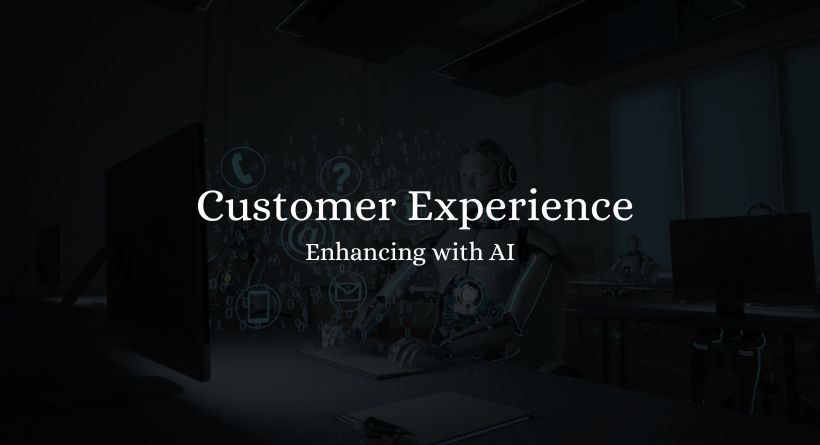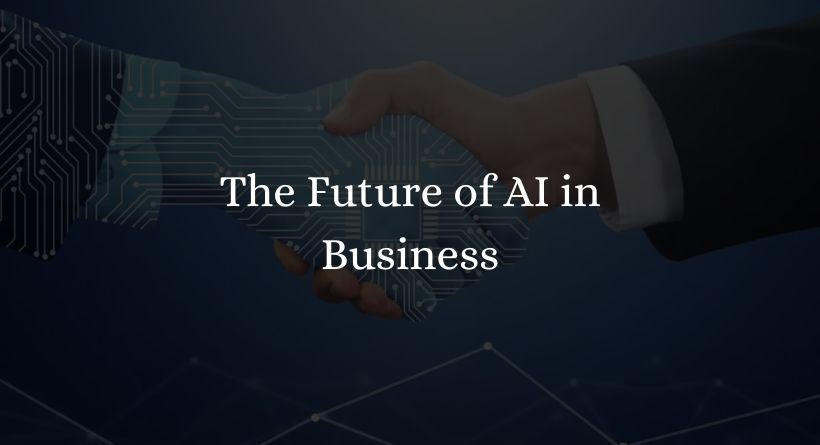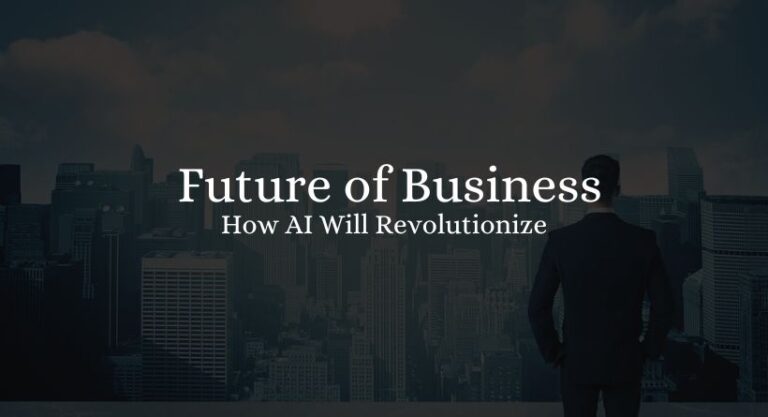Welcome to our comprehensive blog post on how AI will revolutionize the future of business. In today’s rapidly evolving technological landscape, businesses face numerous challenges and opportunities. One of the most pressing concerns is how to stay competitive and adapt to the changing dynamics of the market. With the advent of artificial intelligence (AI), businesses now have a powerful tool at their disposal to enhance productivity, streamline operations, and gain a competitive edge.
Accepting this challenge is the first step towards embracing the future of business. In this article, we will delve into the impact of AI on various aspects of business, from customer service to data analysis, and explore the transformative potential it holds. We understand that navigating this complex terrain might seem overwhelming, but rest assured, we are here to guide you through the process.
Our promise is to provide you with a comprehensive solution to understand and harness the power of AI for your business. By the end of this article, you will have a clear overview of the ways in which AI can revolutionize your operations, improve decision-making, and unlock new avenues for growth. So, let’s dive in and explore the exciting possibilities that lie ahead.
Understanding AI: A Brief Overview
What is AI and how does it work? Artificial Intelligence, or AI, refers to the development of computer systems that can perform tasks that would typically require human intelligence. These systems can analyze data, make decisions, and learn from their experiences. At its core, AI aims to replicate human cognitive abilities, such as problem-solving, pattern recognition, and natural language processing.
The evolution of AI in business has been remarkable. From its early stages of rule-based systems to today’s sophisticated machine learning algorithms, AI has become a game-changer across industries. It has the potential to transform the future of business by automating processes, uncovering insights from vast amounts of data, and enabling businesses to deliver personalized experiences to their customers.
To grasp the key concepts and technologies in AI, let’s explore a few examples. Machine learning, a subset of AI, allows systems to learn from data and improve their performance over time. Natural language processing enables computers to understand and generate human language, revolutionizing interactions between humans and machines. Computer vision empowers machines to interpret and analyze visual data, opening up possibilities in fields like image recognition and autonomous vehicles.
Understanding the fundamentals of AI sets the stage for exploring its applications in enhancing customer experience, optimizing operations, and driving data-driven decision-making. So, let’s delve into these exciting areas and discover how AI is reshaping the future of business.
Enhancing Customer Experience with AI

In the dynamic landscape of business, providing exceptional customer experiences is crucial for success. AI offers a range of powerful tools and techniques to create personalized recommendations and targeted marketing strategies. By leveraging AI algorithms, businesses can analyze customer data, understand preferences, and deliver tailored recommendations that resonate with individual customers. This not only improves customer satisfaction but also drives higher engagement and conversion rates.
Chatbots and virtual assistants are another valuable application of AI in enhancing customer service. These intelligent systems can handle customer queries, provide instant support, and guide customers through their purchasing journey. With chatbots, businesses can deliver round-the-clock assistance and improve response times, ensuring a seamless customer experience.
AI also plays a pivotal role in analyzing customer sentiment and feedback. By employing natural language processing algorithms, businesses can gain insights from customer reviews, social media posts, and survey responses. This helps identify patterns, trends, and sentiment, enabling businesses to make data-driven decisions and tailor their offerings to meet customer expectations.
As you can see, AI has the potential to revolutionize how businesses engage with customers. By harnessing its capabilities, you can create personalized experiences, improve customer service, and gain a competitive edge in the future of business.
Optimizing Operations through AI Automation
In the fast-paced world of business, staying efficient and competitive is paramount. AI automation offers a range of opportunities to streamline repetitive tasks and processes, freeing up valuable time and resources. For example, imagine a manufacturing company that leverages AI-powered robots to handle repetitive assembly line tasks. This not only increases productivity but also reduces the risk of human error.
Predictive analytics is another powerful tool that AI brings to the table. By analyzing historical data and applying machine learning algorithms, businesses can forecast demand, optimize inventory management, and make informed decisions about production and supply chain management. This proactive approach minimizes stockouts, reduces costs, and ensures that the right products are available at the right time.
Furthermore, AI-powered supply chain optimization takes operations to the next level. By integrating AI algorithms into supply chain management systems, businesses can optimize logistics, reduce transportation costs, and improve delivery times. For instance, companies can use AI to identify the most efficient routes, monitor real-time traffic conditions, and make adjustments to ensure timely deliveries.
By leveraging AI automation, predictive analytics, and supply chain optimization, businesses can streamline operations, enhance productivity, and achieve a competitive edge in the future of business.
Data-Driven Decision Making with AI
In today’s data-driven landscape, making informed decisions is crucial for success. AI empowers businesses to leverage big data and machine learning algorithms to extract valuable insights. By analyzing vast amounts of data, AI algorithms can uncover patterns, trends, and correlations that may not be apparent to humans.
With AI-powered analytics, businesses gain actionable insights that drive strategic decision-making. For example, imagine a retail company analyzing customer data to identify purchasing patterns and preferences. This information can be used to personalize marketing campaigns, tailor product offerings, and enhance the overall customer experience.
Moreover, AI automates data processing and analysis, saving time and effort. Manual data entry, extraction, and analysis can be labor-intensive and prone to errors. By utilizing AI, businesses can automate these processes, ensuring accuracy, efficiency, and scalability. This enables organizations to focus on interpreting the insights and making data-driven decisions that propel their business forward.
Data-driven decision making with AI is a game-changer in the future of business. By harnessing the power of big data and machine learning, businesses can unlock valuable insights, optimize strategies, and stay ahead of the competition.
AI in Marketing and Sales
In the dynamic world of marketing and sales, AI has emerged as a powerful ally, transforming traditional approaches and revolutionizing customer engagement. With targeted advertising and customer segmentation, businesses can reach the right audience with personalized messages and offers. AI algorithms analyze vast amounts of data, such as browsing history, purchase behavior, and demographics, to identify patterns and preferences, enabling businesses to deliver tailored advertisements that resonate with their target market.
Sales forecasting and lead generation are areas where AI shines. By analyzing historical sales data, market trends, and customer behavior, AI algorithms can generate accurate sales forecasts, helping businesses make informed decisions about inventory, staffing, and resource allocation. Additionally, AI-powered lead generation tools automate the process of identifying potential customers, allowing sales teams to focus their efforts on qualified leads and improve conversion rates.
AI-driven marketing campaigns and content optimization take personalization to new heights. AI algorithms can analyze customer interactions, preferences, and feedback to optimize marketing campaigns, delivering the right message through the right channels at the right time. For instance, AI-powered chatbots can engage customers in real-time conversations, answering inquiries, providing product recommendations, and guiding them through the sales process.
By harnessing AI in marketing and sales, businesses can enhance customer experiences, boost conversions, and drive revenue growth. Stay tuned for the next section, where we delve into the ethical considerations and challenges surrounding the implementation of AI.
Ethical Considerations and Challenges in AI Implementation
While the potential of AI in business is immense, it also raises important ethical considerations and challenges that need to be addressed. Ensuring data privacy and security is a paramount concern. As AI relies on vast amounts of data, businesses must establish robust safeguards to protect sensitive customer information and prevent unauthorized access or data breaches. Implementing stringent data protection measures and adhering to relevant regulations, such as GDPR, is crucial to maintaining trust and compliance.
Addressing bias and fairness in AI algorithms is another critical aspect. AI systems learn from historical data, which can contain inherent biases, reflecting past inequalities or prejudices. It is essential for businesses to regularly assess and audit their AI algorithms to identify and mitigate any bias or discrimination. By actively working towards fairness and inclusivity, businesses can ensure that their AI applications treat all individuals equitably.
Ethical implications arise from AI decision-making. As AI algorithms become more sophisticated, they may autonomously make decisions that impact individuals or businesses. It is important to establish guidelines and frameworks for AI decision-making to ensure transparency, accountability, and human oversight. Ethical frameworks, such as explainable AI, aim to provide insights into how AI algorithms arrive at decisions, enabling stakeholders to understand and evaluate the reasoning behind those decisions.
Navigating the ethical considerations and challenges of AI implementation requires a proactive approach, with businesses taking responsibility for the ethical implications of their AI systems. By upholding data privacy, addressing bias, and ensuring ethical decision-making, businesses can harness the full potential of AI while building trust with their customers and stakeholders.
The Future of AI in Business

As AI continues to evolve at a rapid pace, the future of business holds exciting possibilities. Emerging trends and advancements in AI technology are set to reshape industries across the board. Let’s explore some key areas where AI is expected to make significant contributions.
In healthcare, AI holds the potential to revolutionize diagnostics, drug discovery, and personalized medicine. AI algorithms can analyze medical images, detect anomalies, and assist in accurate diagnoses. Additionally, AI-driven algorithms can comb through vast amounts of research data, accelerating drug discovery and improving treatment options.
Retail is another sector that will see significant AI advancements. AI-powered recommendation systems will become even more precise and intuitive, guiding customers to products they are likely to purchase. Virtual shopping assistants, powered by natural language processing and machine learning, will provide personalized assistance and enhance the online shopping experience.
Manufacturing and logistics will benefit from AI-driven automation and optimization. Robotic process automation (RPA) will streamline manufacturing processes, increasing productivity and reducing costs. AI algorithms will optimize supply chain operations, minimizing waste, improving inventory management, and optimizing delivery routes for maximum efficiency.
The financial industry will experience transformative changes with AI-powered analytics, fraud detection, and risk assessment. AI algorithms can analyze vast amounts of financial data, identify patterns, and make real-time predictions, enabling faster and more accurate decision-making. Fraud detection algorithms can detect suspicious transactions and anomalies, enhancing security and protecting against financial crimes.
These are just a few examples of the industry-specific applications of AI. The future holds immense potential for businesses that embrace AI opportunities. To stay competitive, organizations need to prepare for the future by upskilling their workforce and embracing the transformative power of AI.
May Also Like Reading: How to Write an Attractive Ecommerce Business Plan 2023
Conclusion
In this comprehensive exploration of AI’s impact on the future of business, we have covered various aspects and applications of artificial intelligence. We began by understanding the basics of AI and its evolution in the business landscape. From there, we delved into how AI enhances customer experience through personalized recommendations, efficient customer service, and sentiment analysis.
We then explored how AI automation optimizes operations by streamlining tasks, providing predictive analytics, and optimizing the supply chain. Data-driven decision making was another key area we examined, highlighting the power of leveraging big data, machine learning algorithms, and automated data processing for actionable insights.
AI’s influence on marketing and sales cannot be overlooked, as targeted advertising, sales forecasting, and AI-driven campaigns open up new possibilities for businesses. We also acknowledged the ethical considerations and challenges surrounding AI implementation, emphasizing the importance of data privacy, fairness, and ethical decision-making.
Looking ahead, the future of AI in business is brimming with promise. Emerging trends and advancements in AI technology will revolutionize industries, from healthcare to retail, manufacturing to finance. By embracing these opportunities and upskilling their workforce, businesses can position themselves for growth and success in the AI-driven era.
As you navigate the future of your business, consider the transformative power of AI and the opportunities it presents. Embrace AI technologies, leverage its capabilities, and stay updated with the latest advancements to stay ahead in a competitive landscape. The future belongs to those who embrace innovation and seize the potential that AI brings.







